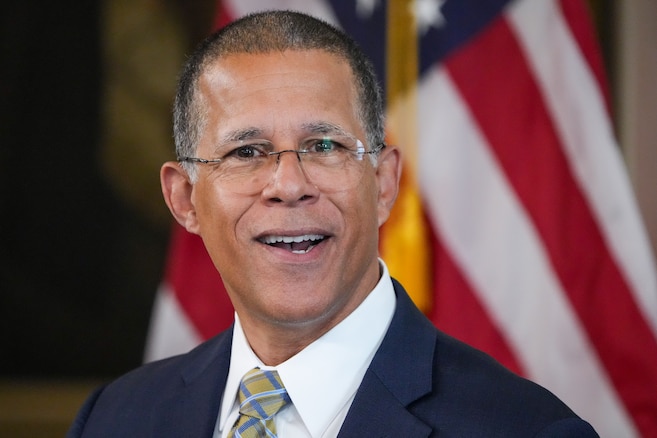Maryland Attorney General Anthony Brown on Friday praised elected prosecutors for opening up case data to researchers.
Prosecutors in Montgomery, Charles and Frederick counties and Baltimore City have launched a grant-funded Case Transparency Project to allow criminal justice researchers to analyze case data for racial disparities in prosecutions.
“Marylanders should be proud that these state’s attorneys are leading the way,” the Democrat said. “Their actions are innovative and courageous.”
Brown’s statement came after The Banner covered efforts some prosecutors have begun to share data and the reluctance of others, including leaders of the state bar association, to follow suit. Brown urged all prosecutors in Maryland to join their colleagues in sharing records.
He said Brown’s office plans to “initiate similarly beneficial partnerships in research.” The announcement did not provide details about when Brown would launch such a project or what form it might take.
“Only by tracking case data on arrests, convictions, charges and other key outcomes, along with racial and gender breakdowns, will we be able to truly understand and eradicate long-standing and pervasive inequities from our criminal justice system,” Brown said.
Brown said state prosecutors sharing case data aligns with his motivation for starting the Maryland Fair Justice Collaborative in October with Maryland Public Defender Natasha Dartigue. The two launched a joint initiative to take a closer look at the causes of mass incarceration and the over-incarceration of people of color in Maryland’s prison system.
“The individual case data we can collect from the State Attorney’s Office is critical to addressing this crisis and this disparity,” Brown said.
State prosecutors who already have the project underway will make their findings public regardless of what the data reveals, and they have forged collaborative agreements with academics and nonprofits to address racial injustice and ensure greater fairness and equity.
The project is funded by grant funding led by Prosecutor Performance Indicators (PPI), a nonprofit that works with jurisdictions across the country to improve the fairness and efficiency of prosecutorial offices through data analytics.
The Maryland State Bar Association spoke out against a statewide data-sharing standard at a state task force meeting, with its president, Howard County State’s Attorney Rich Gibson, saying he worried the measure would encourage competition between jurisdictions and create “scoreboards” among lawyers at the expense of delivering justice.
Elected prosecutors have the ultimate power to decide whether to file criminal charges against defendants and negotiate life-altering plea deals. They also play a critical role in a criminal justice system that has historically over-represented people of color. Without disaggregated metrics on plea deals, charging decisions, case outcomes, and victim services by race, age, and gender, voters—and lawmakers—are left to rely on prosecutors’ self-reporting and anecdotes.
Brian Johnson, a researcher who was part of the team led by PPI, called Maryland prosecutors’ willingness to put scholars like Johnson on the record “an incredible game changer” for a government department not used to exposing its decisions to public scrutiny.
“The culture of the criminal justice system has changed in recent years,” Johnson said. “There’s been a lot more emphasis and a lot more attention to issues of racial justice and equity in the system.”


